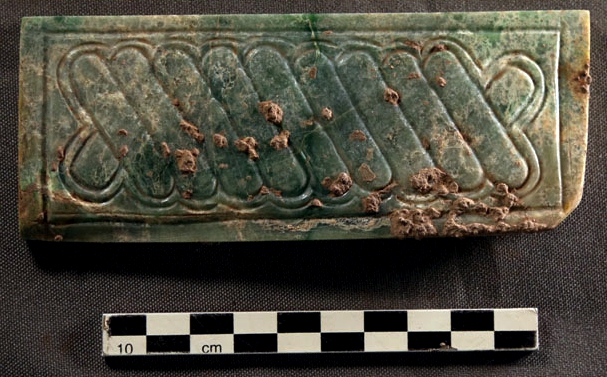Archaeologists dig deep on overseas projects
The Temple of Montu in Luxor, Egypt, has witnessed the ebb and flow of the Nile for more than 3,300 years.
Eyeing the globe

Since 2016, Chinese archaeologists from nearly 30 academic institutions, universities and museums nationwide have taken part in 40 cross-border projects, in cooperation with 24 countries, according to the National Cultural Heritage Administration.
For example, by last year scholars from Sun Yat-sen University in Guangzhou, capital of Guangdong province, had completed four major excavations on early-stage relics at the Sea of Galilee in Israel.
Experts from Nanjing University in the Jiangsu provincial capital have been involved in the long-term and comprehensive excavation of relics spanning more than 6,000 years in Iran. They have also helped with efforts to build a museum to display the relics.
Excavation work by archaeologists from China and Saudi Arabia is continuing at the port ruins of al-Serrian, near Mecca.
Archaeologists from the National Center of Underwater Cultural Heritage have unearthed the site's trade links with China from the ninth to 13th centuries through the Maritime Silk Road. Saudi Arabia's first licensed underwater archaeologist was also trained as part of this program.
Song Xinchao, deputy director of the National Cultural Heritage Administration, said: "From Egypt, the Mayan civilization, to the Silk Road, these projects fully demonstrate Chinese archaeologists' capacity for research. Our methodologies are better understood and our expertise is being honed."
Li, from CASS, said seven Chinese students have taken part in a cooperative training program between China and the United States at Harvard University for the Copan project. As a result, Li expects more young Chinese scholars will be encouraged to join research work in Central America.
Song said: "Cooperative archaeological work also contributes to the big picture of our country's diplomacy. Under China's efforts to promote a shared community of mankind-the Belt and Road Initiative-archaeologists play important roles."
Song added that the hard work of many Chinese archaeologists has been greatly admired by their overseas counterparts, which will improve people-to-people connectivity.
Li has been taking Spanish lessons during his spare time in Honduras.
"It is a way to improve my communication with the locals," he said, adding that he had been impressed by friendly residents near the Copan site who offer him a great deal of help each day.
"Learning the language also shows my determination and sincerity," he said. "This is not a short-term assignment-I want to steadily continue progressing."

